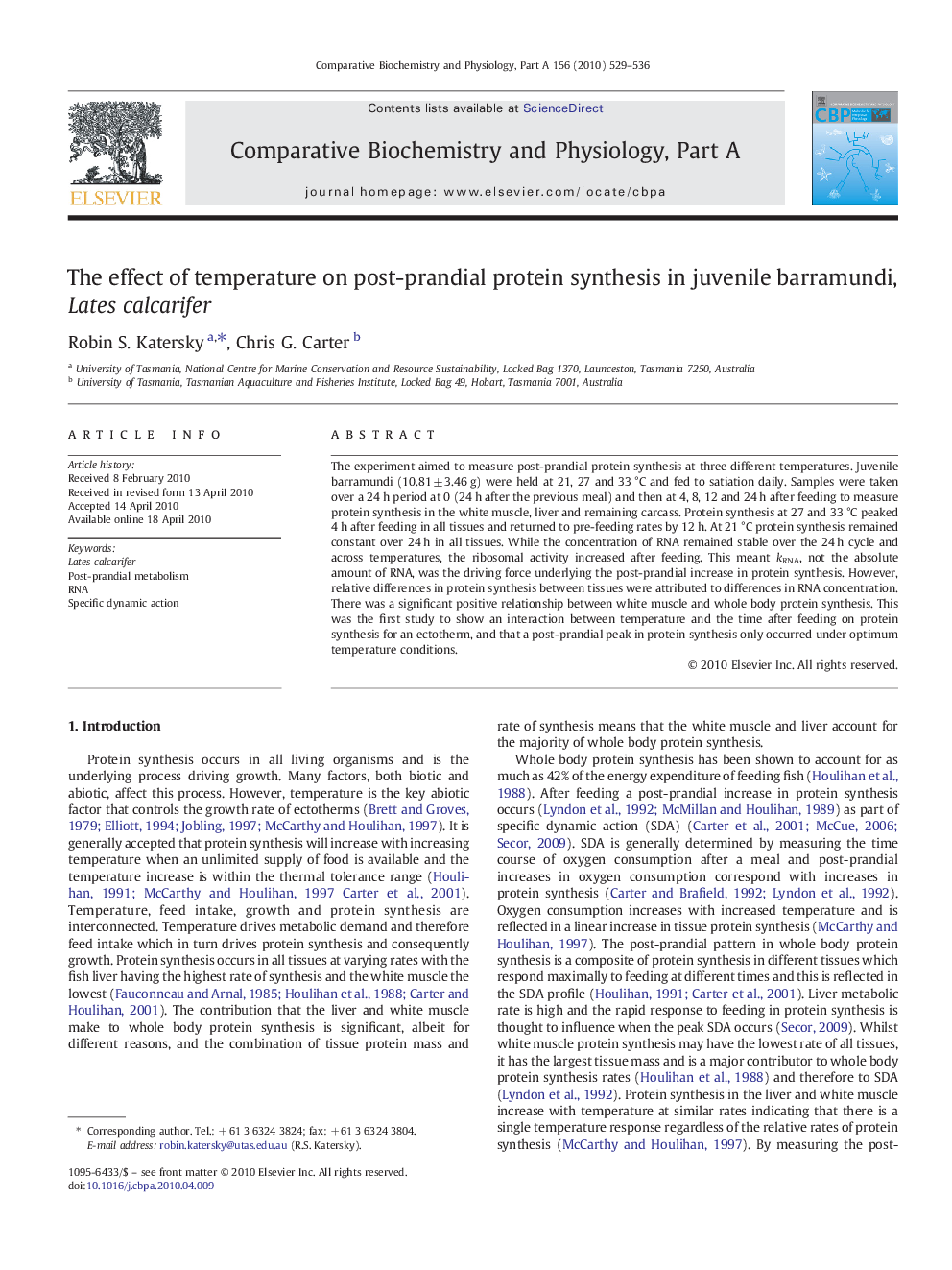| کد مقاله | کد نشریه | سال انتشار | مقاله انگلیسی | نسخه تمام متن |
|---|---|---|---|---|
| 1972972 | 1060303 | 2010 | 8 صفحه PDF | دانلود رایگان |

The experiment aimed to measure post-prandial protein synthesis at three different temperatures. Juvenile barramundi (10.81 ± 3.46 g) were held at 21, 27 and 33 °C and fed to satiation daily. Samples were taken over a 24 h period at 0 (24 h after the previous meal) and then at 4, 8, 12 and 24 h after feeding to measure protein synthesis in the white muscle, liver and remaining carcass. Protein synthesis at 27 and 33 °C peaked 4 h after feeding in all tissues and returned to pre-feeding rates by 12 h. At 21 °C protein synthesis remained constant over 24 h in all tissues. While the concentration of RNA remained stable over the 24 h cycle and across temperatures, the ribosomal activity increased after feeding. This meant kRNA, not the absolute amount of RNA, was the driving force underlying the post-prandial increase in protein synthesis. However, relative differences in protein synthesis between tissues were attributed to differences in RNA concentration. There was a significant positive relationship between white muscle and whole body protein synthesis. This was the first study to show an interaction between temperature and the time after feeding on protein synthesis for an ectotherm, and that a post-prandial peak in protein synthesis only occurred under optimum temperature conditions.
Journal: Comparative Biochemistry and Physiology Part A: Molecular & Integrative Physiology - Volume 156, Issue 4, August 2010, Pages 529–536